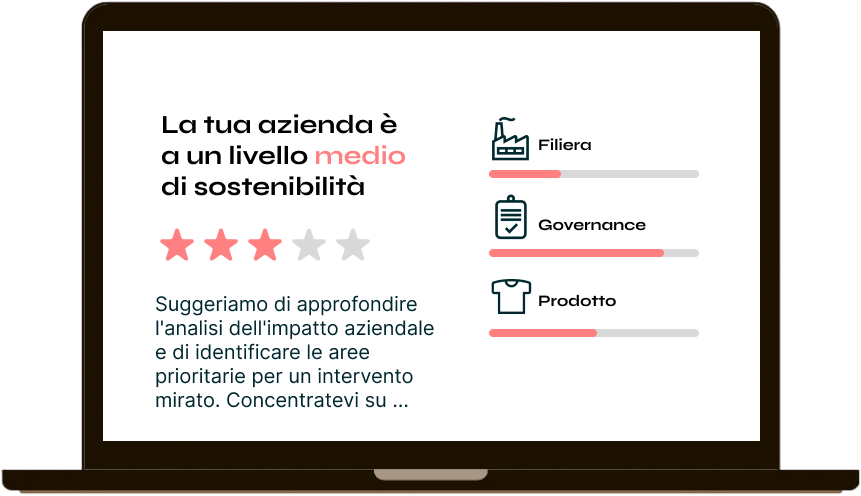Fairtrade clothing: Fairtrade certification
The fashion supply chain is very complex and multi-faceted and has often been accused of not adequately respecting the human rights of workers.
The main problems along the textile supply chain include:
- Wages below the subsistence level: according to a report by Clean Clothes Campaign, the legal minimum wage for a worker in the textile and garment industry in India is 8,608 rupees (about 97 euro), which is 36% less than the subsistence wage needed to live decently in the country.
- Gender issues: several surveys have shown that, especially in raw material-producing countries, the workplace is often unsafe. For example, in Bangladesh, 76% of female workers said they had been victims of physical or verbal violence by supervisors.
- Forced labor and child exploitation: It is estimated that in the Xinjiang region of China, at least 570,000 Uyghur Muslims have been forced to work in 're-education' camps, i.e. forced labor camps where they produce various products for export, particularly products made from cotton, which accounts for one-fifth of the world's supply.
- Workplace deaths: one of the first tragedies that showed the terrible working conditions of many textile workers was the Rana Plaza tragedy in 2013, where 1,134 people died when clothing factories in Bangladesh collapsed. Furthermore, in 2021, 28 people died in a clandestine underground workshop in Tangier, Morocco, due to torrential rains.
Awareness of the critical social issues often found along the supply chain led to the emergence of the concept of fair trade, or Fair Trade.
The Fair Trade movement originated in Northern Europe in the 1950s and 1960s as a response to poverty and the exploitation of workers in the agricultural sector.
Over the years, Fair Trade has become more and more established, which is why Fairtrade certification was created.
Fairtrade is registered with the European Union as a certification mark and was developed by the non-profit organization Fairtrade International.
To qualify as Fairtrade, products and production must be based on 3 principles:
- Payment of a minimum fee to the farmer;
- Payment of an extra premium paid directly to local producer organizations;
- Respect for human and environmental rights through production that protects local biodiversity and labor.
The Fair Trade phenomenon in fashion
The presence of the words 'fair trade' on products does not automatically guarantee that they actually respect these principles. For this reason, it is important to be aware of the available certifications and the environmental and social aspects that the certifications protect.
In this respect, Fairtrade certification ensures that the product in question meets fair trade requirements. Fairtrade certification protects a wide range of products, including chocolate, coffee, tea, sugar, honey, rice, bananas, tropical fruit, biscuits, breakfast cereals, snacks, fruit juices, cotton, cosmetics, jewelry and flowers.
Considering the social difficulties of the fashion industry, the organization Faitrade International has developed specific certifications and standards for the fashion industry.
In particular, two different types of certifications have been created to guarantee the production and fair trade of cotton fibers and finished garments:
- The Fairtrade Cotton certification;
- The Fairtrade Textile certification.
Fairtrade Cotton certification
Fairtrade works primarily with small-scale farmers in developing countries to protect their health and safety, but also to implement more sustainable farming practices.
In particular, Fairtrade prohibits the use of genetically modified cotton seeds, encourages the reduction or elimination of chemicals and promotes more rational water management in the fields. For example, Fairtrade cotton fields in West Africa and India are irrigated only with rainwater, reducing the region's water footprint compared to production in other countries.
Currently, more than 100 million producers in over 75 countries are involved in the production of Fairtrade-certified cotton.
Alongside environmental sustainability during the cotton production process, Fairtrade Cotton certification ensures safe and fair working conditions by helping small local producers to establish independent cooperatives that protect workers.
Fairtrade Textile certification
Initially, the certification focused only on cotton producers. However, as of 2016, the Fairtrade Textile Standard and the Fairtrade Textile Programme were introduced to ensure that the rights of all workers are respected at every stage of production, from the cotton seed to the finished garment. The aim of the project is to prevent abuse and violence by ensuring that workers' rights are respected throughout the production chain.
Fairtrade Textile Programme is a tool to support companies on their path to certification.
Independent experts assess compliance with workers' rights and environmental and occupational safety requirements. The pre-certification audit process focuses on the protection of workers' rights, decent wages and occupational health and safety.
The Fairtrade Textile Standard is a component of the Fairtrade Textile Programme and requires the following principles for workers to be respected:
- Living wage: the Fairtrade Textile Standard requires the implementation of decent wages within six years;
- Worker empowerment: the standard offers support to workers to improve their status and position within the company;
- Workplace safety and health: the Fairtrade Textile Standard sets out requirements for workplace safety, including the use of protective clothing, proper handling of hazardous materials and building safety;
- Working conditions: the standard includes requirements for working hours and overtime, employment contracts and temporary work;
- Worker training: the standard promotes awareness of workers' rights.
In addition, the Fairtrade Textile Standard includes a list of specific banned materials for textile production that may be harmful to human health and natural ecosystems.
Conclusions
The extraordinary development of Fairtrade in recent years shows how important it is for consumers to know the story behind the products they buy.
Fairtrade certification guarantees the end customer that workers' rights and environmental requirements have been protected and respected at every stage of the production chain, and that buying Fairtrade products directly supports local communities.
Choosing Fairtrade also means promoting more sustainable fashion that uses raw materials from fair trade and production.
Get articles like this and the latest updates on sustainable fashion automatically!
